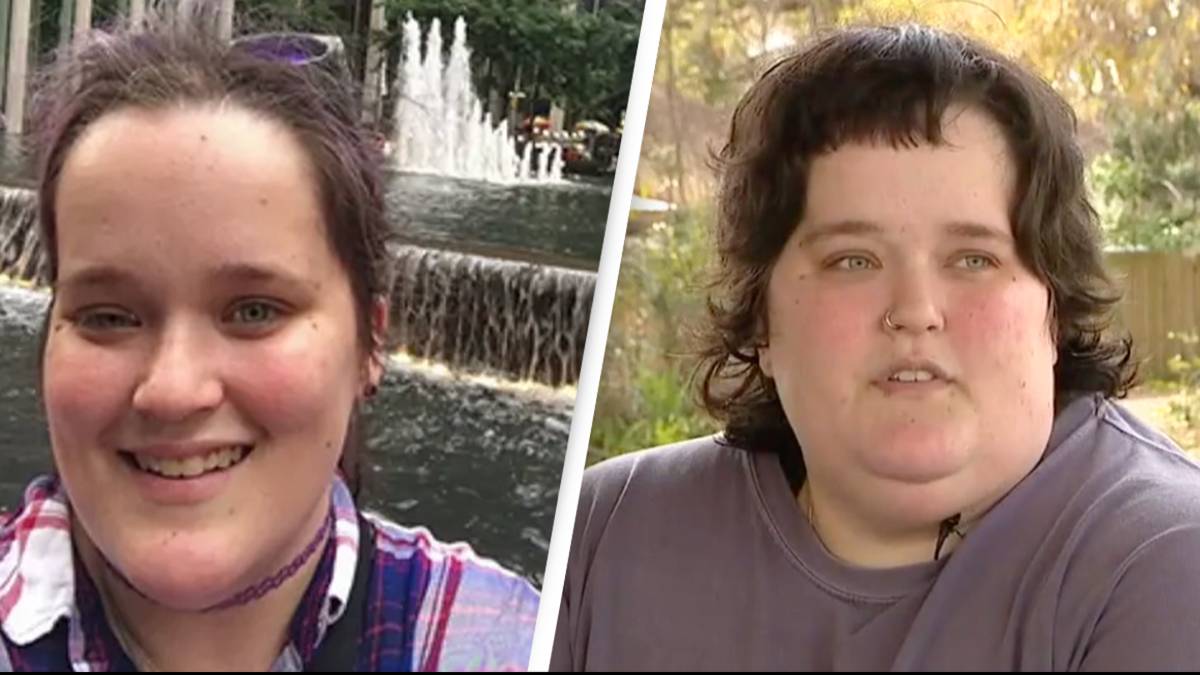Megan Troutwine made a startling observation that ultimately played a crucial role in saving her life while taking a selfie in the vicinity of Times Square.
A woman stumbled upon a surprising revelation after capturing a selfie near Times Square.
During her visit, Megan Troutwine, like any typical tourist, decided to snap a photo to commemorate the occasion. However, upon reviewing the image, she detected a subtle anomaly that caught her attention. Specifically, she observed a slight droopiness in one of her eyes in the photograph. While seemingly insignificant, this discrepancy raised concerns for Megan, especially considering a series of cognitive issues she had been experiencing.
In 2016, Megan took the initiative to consult her physician regarding this peculiar observation. Subsequently, she was referred to a neurologist for a more comprehensive evaluation. To her dismay, subsequent examinations confirmed Megan’s apprehensions about her drooping eye, unveiling a far more serious underlying condition.

Following a battery of tests, healthcare professionals made a distressing discovery—a sizable tumor nestled within Megan’s brain. Reflecting on the moment she first noticed her eye’s unusual appearance, Megan recollected, “I’m like, ‘oh, that’s weird. That picture looks weird.’ Little did I know.”
Fortunately, the tumor turned out to be benign yet aggressive. Treatment involved surgical intervention to excise the tumor, accompanied by an additional surgical procedure and 23 sessions of radiotherapy following the detection of further growth.
Amidst her treatment journey at Moffitt Cancer Center, clinicians unearthed a more perilous tumor known as a glioma, notorious for its potential to induce significant harm.
Megan candidly shared her struggles, highlighting the cognitive challenges and memory lapses she grappled with, stating, “Dealing with the cognitive issues and dealing with the memory loss and stuff like that, that was probably the hardest because I know that I’m smarter than that. I’m more capable than that. I can do more. But, it’s learning how to give myself the grace in the midst, too.”
Neuro-Oncologist Dr. Sepideh Mokhtari recounted the initial detection of the tumor, emphasizing its gradual increase in size over time during monitoring.
Despite the adversities, Megan considers herself fortunate, describing the experience with a low-grade glioma as a paradoxical blessing, acknowledging the impending challenges while maintaining a sense of anticipation.

Subsequent to the diagnosis of a PTEN gene mutation rendering her susceptible to other forms of cancer, Megan now undergoes routine check-ups, enabling early intervention for any potential risks—an aspect her healthcare providers have diligently managed.
Expressing gratitude for the exceptional care she received, Megan assumed roles as a Health Unit Coordinator and volunteer Comfort Companion at the medical facility that played a pivotal role in her recovery. She expressed, “It’s even more of an honor to be able to pay back that love and to contribute to making it better for everyone else, too.”

